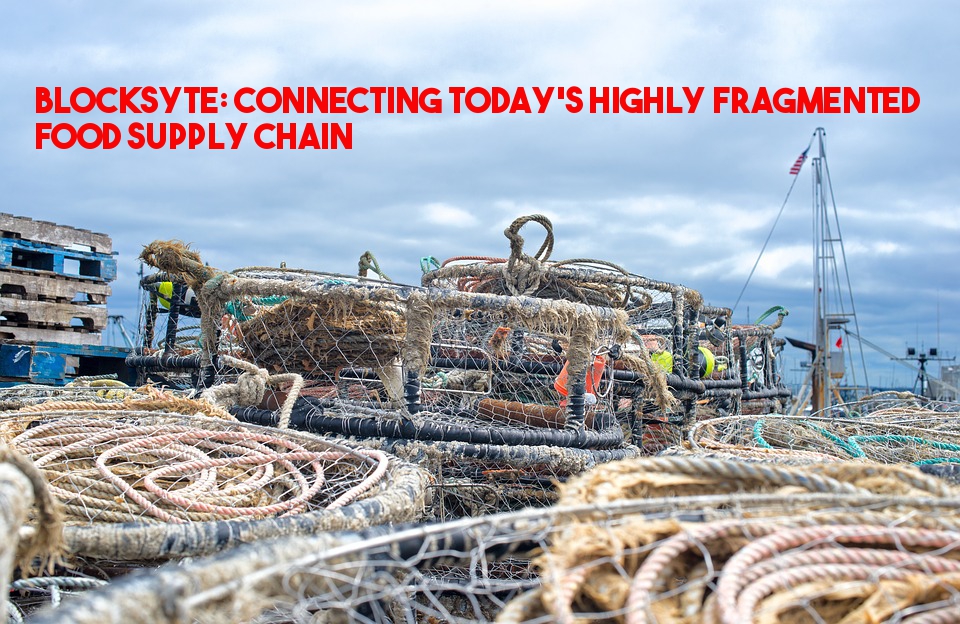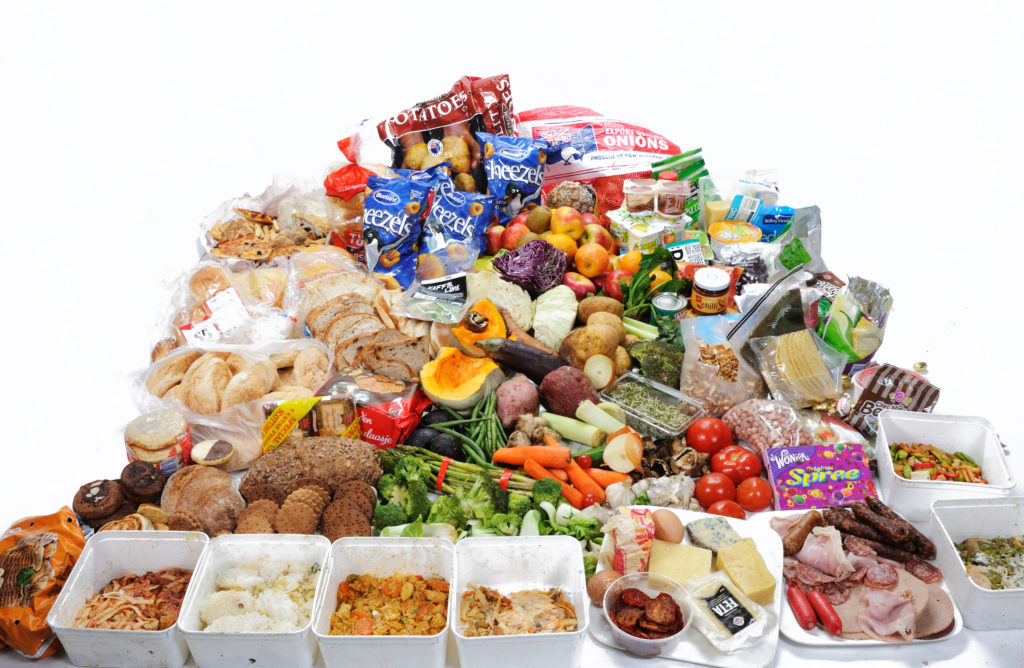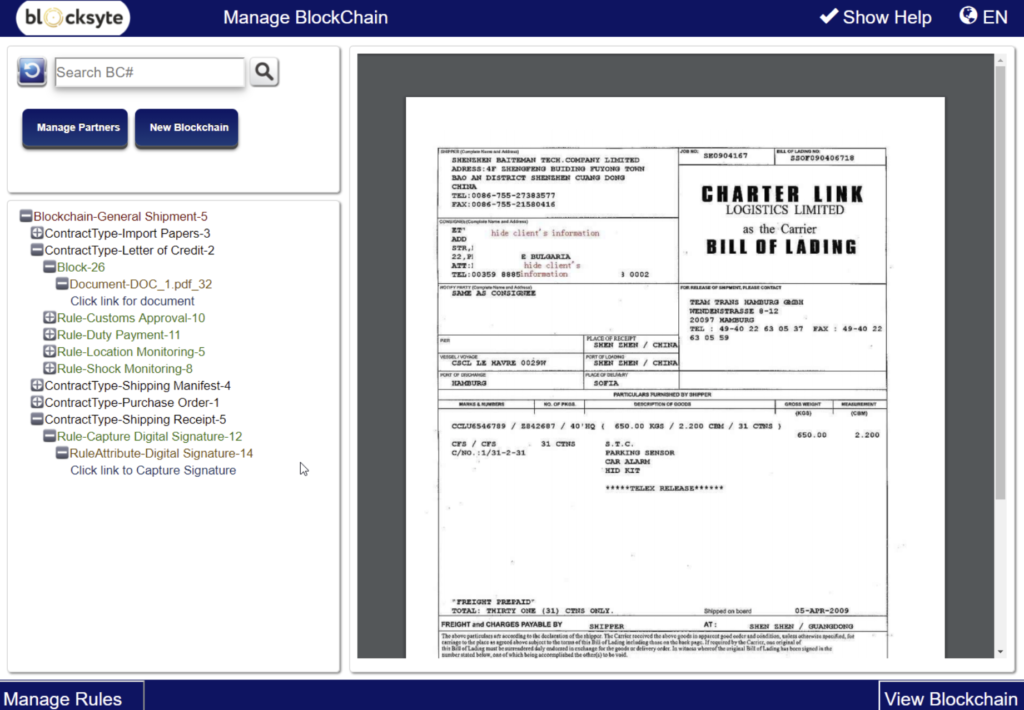
Blocksyte: Harmonizing Today’s Highly Fragmented Food Supply Chain
Based in the Granite State and tackling the highly fragmented USD $1.4 trillion food industry, Blocksyte is a SaaS-based blockchain solution and secure distributed immutable ledger positioning itself as a one-stop-shop for mid-market supply chain companies.
Recently, both Alan Pelz-Sharpe (Blocksyte’s CEO) and Michael Doherty (Chief Operations Officer) took some time out of their schedules to walk me through what we can expect from Blocksyte this 2019, why New Hampshire is their blockchain project domicile of choice, and how blockchain stands to enable unprecedented value for local and regional supply chain companies and processes.
If you’re looking for a detailed breakdown of what Blocksyte is and its easily configurable hardware solution and end-to-end application for supply chain companies, check out our past article here.
Table of Contents
The $1.2 Trillion Dollar Food Problem

A 2013 World Economic Forum Report, issued in collaboration with the World Bank and Bain & Company, decreed that reducing present day supply chain management barriers could ultimately stand to increase worldwide GDP by roughly 5%, enabling an economic surgence in the trillions. Of our modern day supply chain processes, food waste is valued at nearly $1.2 trillion per year.
In the case of highly nuanced and complex food supply chain mechanisms and processes, negligence, fraud, delay, and other crippling threats have unfortunately become the norm, ultimately stifling enterprise and business from correctly identifying and remedying inefficiencies and issues in a timely manner. There’s far too many instances to list, as the past 15 years have yielded some of the most egregious food supply chain mishaps, however; below are several of the most infamous.
- India’s 2015 Maggi noodles lead and MSG finding,
- Sweden, France, and the United Kingdom’s 2013 horsemeat contamination, and
- 2008 Chinese milk scandal (which affected over 300,000 infants and hospitalized 54,000).
Industries collapsed and consumer distrust in modern day supply chain processes rose to an all-time high. Rightly so, consumers are demanding our food production, pharmaceutical processes, and supply chain mechanisms be not only honest, but verifiable.
Furthermore, according to a 2016 OliveOilTimes report conducted by Unaprol, the largest organization of Italian olive oil producers in the world, roughly 54% of olive consumers actually believe they’re buying a true Italian product when a label contains an Italian name or brand. However, the authenticity of olive oil sold in the United States is far from desirable, with several estimates placing the percentage of fraudulently sold olive oil in the United States anywhere from 69% to 80%.
Do note that this is a number that has generated quite the tension over the years between academics and olive oil regulatory/governing bodies – with the North American Olive Oil Association emphatically declaring 98% of olive oil sold in U.S. retail outlets to be authentic.
The point is…this is a highly contested statistic – one that deserves to be settled once and for all. Furthermore, our modern supply chain processes and mechanisms are glaringly out of sync, leading to spoiled products, minimal profit margins, excessive buyer/seller disputes, and inability to guarantee consumers a trusted origin and delivery of product.
So, what if you were able to do that all with an easily configurable real-time supply chain monitoring solution? Cue Nashua, New Hampshire-based blockchain project Blocksyte.
The Answer: Blocksyte’s Real-Time Supply Chain Monitoring Solution

While there’s a fighting chance for large corporations and supply chain monoliths to survive a deadly (and costly) food disaster, that’s not the case for local and regional supply chain companies/processes. Smaller supply chain companies and players are afforded less leniency when it comes to deliverance, quality, and margins, unsurprisingly due to the smaller volumes of product they transact in. Blocksyte provides an honest and accessible answer for small to mid-market businesses seeking to remedy glaring supply chain inefficiencies and guarantee high standards of product quality.
According to Pelz-Sharpe, Blocksyte is a manageable combination of four key components, all geared towards harmonizing today’s fragmented supply chain processes:
- SaaS-based blockchain solution: A highly functional and easy-to-use self-configuration blockchain platform.
- IoT sensors: For the tracking, monitoring, and controlling temperature, humidity, and quality of product all in real-time (KPIs),
- Do-it-yourself IT: For companies which otherwise can’t afford and maintain complex IT systems, and
- Accessibility: Enabling customers and companies to confidently leapfrog competitors, all without excessive startup and maintenance costs.
Pelze-Sharpe noted that today’s biggest driver in supply chain at the moment is traceability. “I grew this. I manufactured this. I was able to see it through the entire supply chain life cycle. Food manufacturers want to do the right thing, and work extremely hard to produce the right product.”
Now, they’re able to guarantee authenticity, quality, and traceability thanks to Blocksyte.
Two Reasons to Keep an Eye on Blocksyste This 2019
Blocksyte has hit the ground running since their 2018 launch, having already operated several successful pilots with customers representing various parts of the supply chain – most notably, Haverhill, Massachusetts-based cold storage and refrigeration company ‘CF Cold Storage’.
However, such previous pilots may ultimately take second place to their upcoming two proof-of-concepts set to realize unprecedented value for two distinctly unique food types and processes.
Let’s take a further look.
Two Major Proof-of-Concepts
The buzz is real for Blocksyte this 2019, with Pelz-Sharpe revealing to us an extremely exciting and unique supply chain facilitation – the tracking of 55 gallon drums of organic honey from the South of Brazil (near the Uruguayan border) all the way to Kansas. Via Blocksyte’s full end-to-end application and API for the optimization of supply chain logistics, they will be able to guarantee the organic honey transported across this nearly 6,000 mile route is the same thing that left Brazil’s southern border.
So, why is this significant?
Well, for starters, honey is generally classified as one of the most commonly fake products in the world, with MyBeeLine, a popular beekeeping website estimating roughly 76% of all honey sold in the United States to be fake. For a product that has been linked to countless health benefits, including heart health, blood antioxidant status, and wound healing, inauthentic honey may leave consumers devoid of vital nutrients and injecting themselves with unhealthy substances.
Blocksyte’s second proof-of-concept set to make waves this 2019 is their upcoming tracking of pasteurized crab meat from the Philippines across the Pacific Ocean to the United States.
Crab meat is well-known for being highly susceptible to spoilage during transport, and has been a recurring subject of FDA and CDC calls for avoidance. Additionally, the CDC notes that contaminated crab is a conduit for the effective contamination of other seafood in a kitchen just by sheer proximity.
Blocksyte’s straightforward IoT sensors and real-time integrity analytics will ultimately enable products with high spoilage rates to safely cross borders and make its way to the dinner table.
Domicile in the Granite State
With lesser regulatory hurdles and red tape to jump through, blockchain-friendly legislation in passage, and reduced startup and maintenance costs, New Hampshire (aka the ‘Granite State’) is quickly becoming a go-to destination for blockchain companies looking to establish their stronghold at the forefront of crypto adoption.
In a past interview with New Hampshire Business Review, Pelz-Sharpe stressed New Hampshire’s ideal positioning as a key hub for supply chain in the Northeast, “There’s tax advantages, real estate here is lower.” He continued, “This is a region that’s famed for its cheeses…It’s really important that you have a really good eye on how it’s transported and stored.”
Speaking with us at BlockchainSEO, Pelz-Sharpe noted the sheer amount of startups that are being priced out of Boston, and differing tech landscape – one less geared towards the small to mid-market companies at the heart of New England’s productivity.
Final Thoughts
Besides the introduction of crypto-friendly bill HB470, there’s countless reasons why the state of New Hampshire is making notable waves in the implementation of blockchain tech; geographical proximity to major Northeast cities, affordable rent for startups, and lesser regulatory hurdles to jump through. Blocksyte is in the midst of giving the Granite State one more gargantuan reason – all through their secure, trustless, supply chain solution for local and regional supply chain companies.
To read up further on Blocksyte and their 2019 ahead, head on over to their website and make sure to follow them on Twitter.
Make sure to keep up with our cryptocurrency blog for all the latest blockchain updates, news pieces, and informative articles. And, don’t forget to follow us on Medium and Twitter. Do let us know in the comments any topics you’d like to see us cover this 2019. We’d love to hear from you!
-Obiter Cryptum